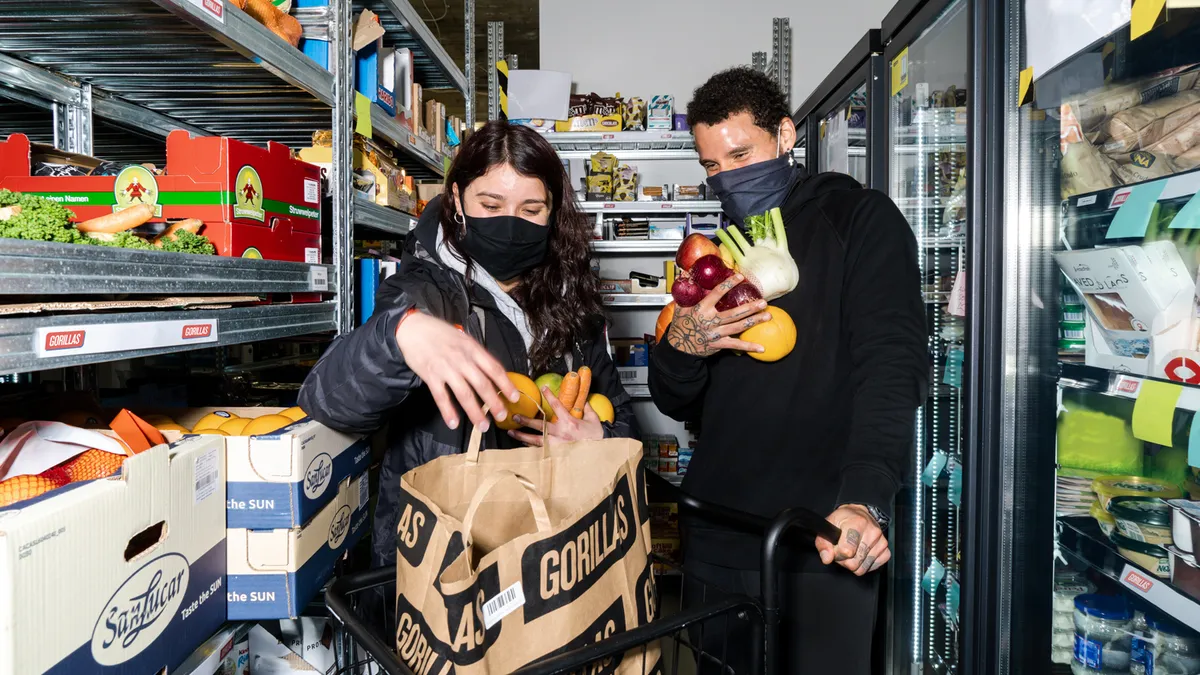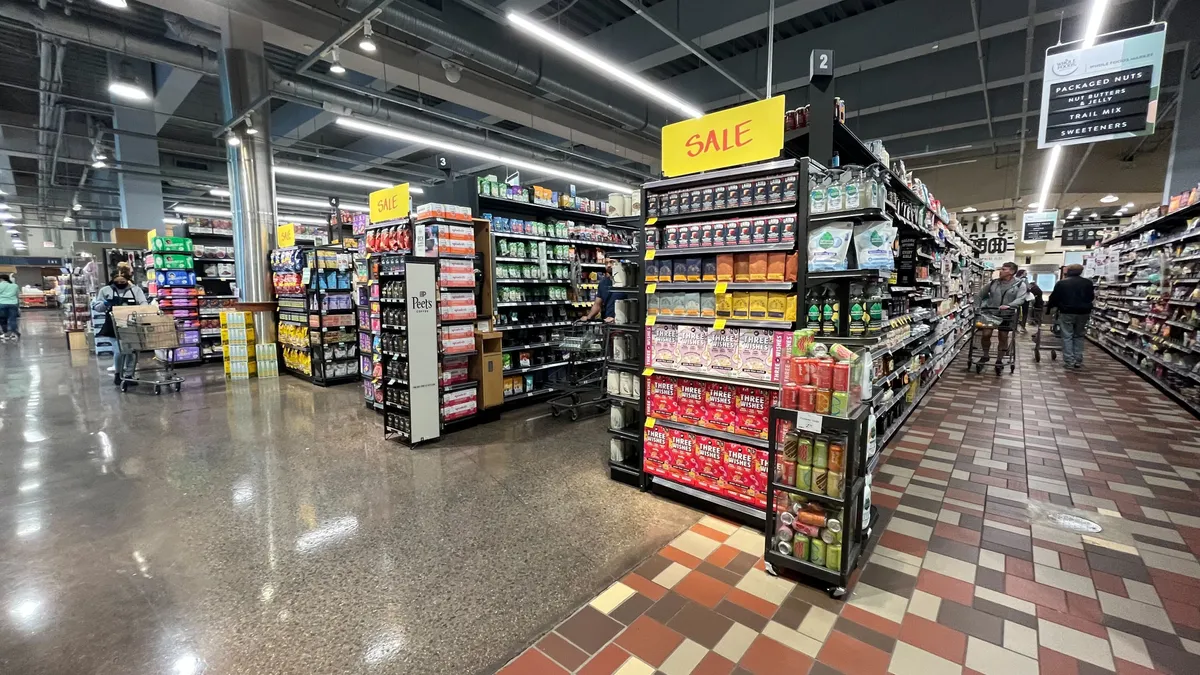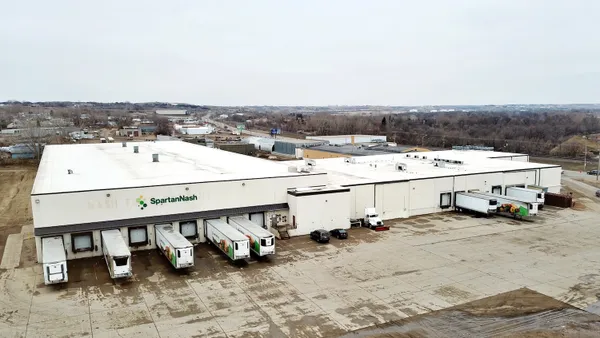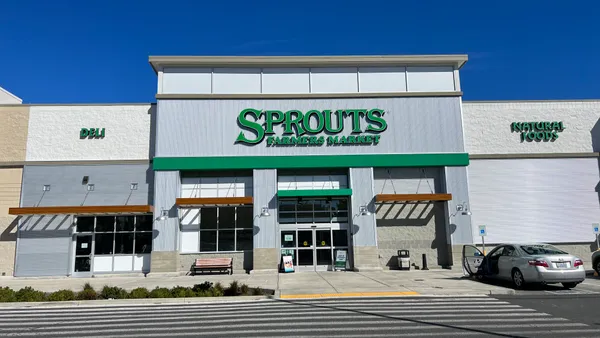Dive Brief:
- Ultrafast delivery startup Gorillas has laid off 300 corporate employees and is looking at “all possible strategic options” for its operations in Italy, Spain, Denmark and Belgium, co-founder and CEO Kagan Sumer said on Monday in a public letter to employees following a company meeting. The layoff impacts around half of Gorillas' office staff, Reuters and The Verge reported.
- “We will increase our investments in our core markets: Germany, the Netherlands, the UK, France, and the US — where we make 90% of our revenue and are on a clear path to profitability,” Sumer said in the letter. Sumer did not say how the company's operations might change — or stop entirely — in Italy, Spain, Denmark and Belgium.
- Sumer said Gorillas is tightening its operations because challenging market conditions have prompted investors to shy away from companies — like those in the rapid delivery space — that operate on low or negative margins.
Dive Insight:
Sumer said that Gorillas took steps to adjust its risk profile nine months ago because it foresaw shifts in the economy that would make it difficult to raise money. Gorillas "radically shifted our focus from growth to efficiency" and has tripled the size of its business since late last year, he said.
Even with its $1 billion Series C round last fall and pausing its U.S. expansion plans just months after arriving in the country, Gorillas is still up against a challenging funding landscape.
“Two months ago in March, the markets turned upside down, and since then the situation has continued to worsen. … And tech companies, especially low or negative margin tech companies, are facing a very strong headwind,” Sumer said.
For employees impacted by the layoff, Gorillas recently created an "Alumni Directory" where former workers can share their information, which the company will make available to "stakeholders from our ecosystem," Sumer said.
Gorillas' workforce includes approximately 14,400 people who work in warehouses and as delivery drivers, according to The Verge.
Sumer painted the move to a leaner staff and potential changes to its operations in four European markets as ways for Gorillas to "be much more precise with what we do, and how and where we do it."
As the rapid delivery space continues to tighten, Sumer expects more consolidation ahead, with one to two players remaining within a year: '[T]hese challenging times will define the winners in our industry."
In March, Buyk ceased operations in New York City and Chicago. Fridge No More, which operated in New York City and Boston, also closed its business that month. In December, 1520, which served customers in New York City and Chicago, reportedly shut down.
Meanwhile, Gopuff cut 3% of its global workforce of around 15,000 employees earlier this spring as part of an internal “realignment” to improve the company’s financial performance.
Some ultrafast firms are finding backing from large retailers, while others are diversifying their revenue streams. Gopuff recently launched its first restaurant brand under its Kitchen division, while Jokr has started its own retail media platform.
In April, 15-minute grocery delivery firm Food Rocket raised a $25 million Series A round led by Alimentation Couche-Tard, the Canadian company that owns Circle K, and plans to open a fulfillment center in Chicago this summer in tandem with a new Circle K convenience store.














